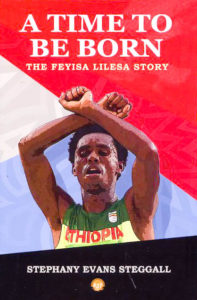
In the 2016 Olympic Marathon, Feyisa Lilesa approached the starting line with athletes from countries around the world. The commentators would not have noticed Lilesa as their attention turned to athletes from Kenya, Eritrea and Uganda. Just under two hours later the world’s attention had re-focused on Lilesa as he overcame Glen Rudd from the United States to take a position behind Eliud Kipchoge of Algeria. His feet pounding the pavement, Lilesa crossed the finish line, crossing his arms above his head as he won the silver medal. I thought nothing of the gesture as I watched Rudd cross the line behind Lilesa – it was simply a gesture of triumph. Not so to the Oromo people and the government of Ethiopia.
The Oromo people have long been oppressed by the government of Ethiopia. Lilesa is of Oromo heritage and had longed to bring the plight of the Oroma people plight to the attention of the world. As a boy, he had enjoyed running and easily won the races he entered. When he reached maturity, winning international competitions, he began to dream of the Olympics as a stage to bring attention to Oromia.
In 2017, we were asked to host Dr. Stephany Steggall, an Australian writer, as she interviewed Lilesa for a biography that focused on the Oromo and his protests at the Olympics. She could not tell me who she would be interviewing when we first made the arrangements. Lilesa was maintaining a low profile out of fear of his own government. After his protest at the 2016 Olympics, he had gone into seclusion, fearing that assassins hired by the Ethiopian government would silence his voice. He made his way to the United States and found he was welcomed into the running community in Flagstaff. Stephany and an Oromo translator spent two weeks talking with Lilesa. This was a complicated process as she asked questions and then listened as the two men discussed the answer. The translator transcribed their conversation and she worked from his notes.
Lilesa’s return to Ethiopia was in triumph. The government that had oppressed his people had been toppled. As he emerged from the airport, a roar went up from the massive crowd awaiting his arrival. Today, Lilesa lives in Flagstaff with his family. He is now one of us, enjoying the benefits of our economy and mountain town. The Olympics return later this month. Lilesa will not be competing. An old injury has returned, keeping him from training. He recently told me he has a hard time running just a mile or two.
A Time To Be Born takes a hard look at the abuse that the Oromo people have suffered as well as Lilesa’s experiences growing into an Olympic marathoner. Honestly, this is not an easy book to read but it helps us to understand that the obstacles for athletes from other nations are more than just a matter of feet pounding pavement.
A Time To Be Born by Dr. Stephany Steggall is available through Amazon.
